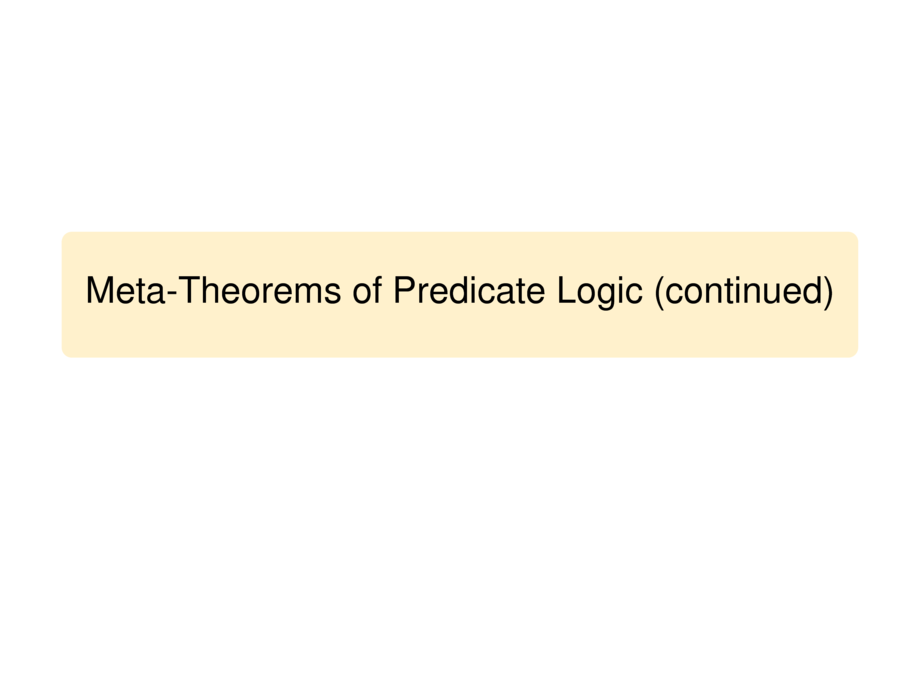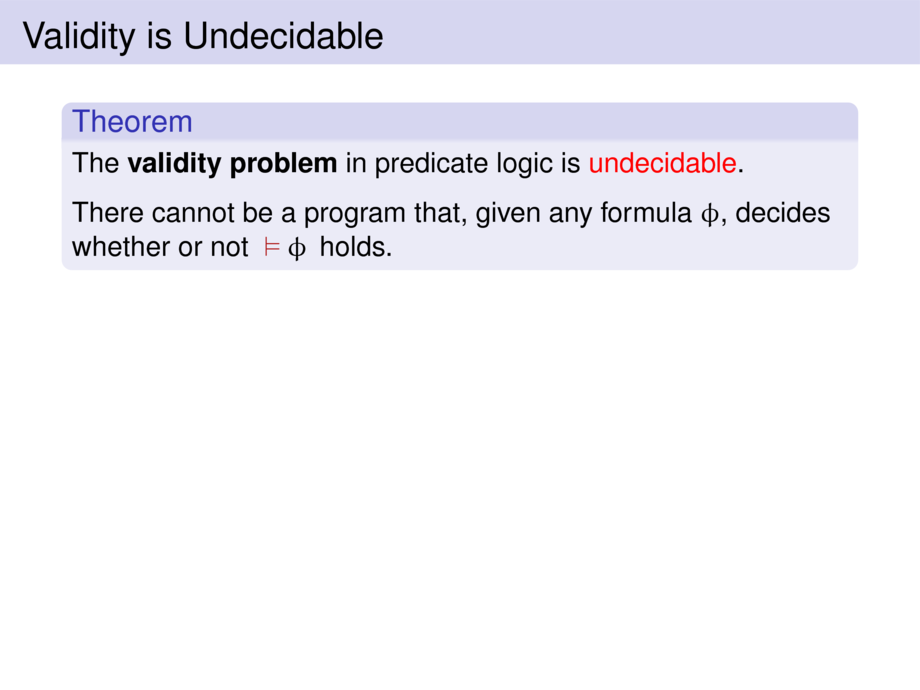



































































































62/162
\begin{frame}[t]{Validity is Undecidable}
\begin{block}{Theorem}
The \emph{validity problem} in predicate logic is \alert{undecidable}.
\medskip
There cannot be a program that, given any formula $\aform$,
decides whether or not $\;\ssatisfies\: \aform\,$ holds.
\end{block}
\pause
\begin{proof}[Proof structure]
PCP can be \emph{encoded into} (\emph{reduced to}) the validity problem.
\medskip\pause
We will describe a computable function $\dm{r}$ that maps
instances of PCP to instances of the validity problem:
\begin{talign}
\dm{r} \funin \;\; \forestgreen{I} \;\; & \longmapsto \;\; \aformi{\forestgreen{I}}
\\[-1ex]
\intertext{such that it holds:}
\\[-3ex]
\text{$\forestgreen{I}$ has a solution}
\;\; & \Longleftrightarrow \;\;
\satisfies \!\! \aformi{\forestgreen{I}}
\text{$\;\;$ (i.e.\ $\aformi{\forestgreen{I}}$ is valid})
\end{talign}
\pause\vspace*{-2ex}
Then if we had a program \emph{deciding validity} for predicate logic,
we would obtain a \alert{PCP-solver.} $\;$ \alert{$\xmark$}
\renewcommand{\qed}{}
\end{proof}
\end{frame}

